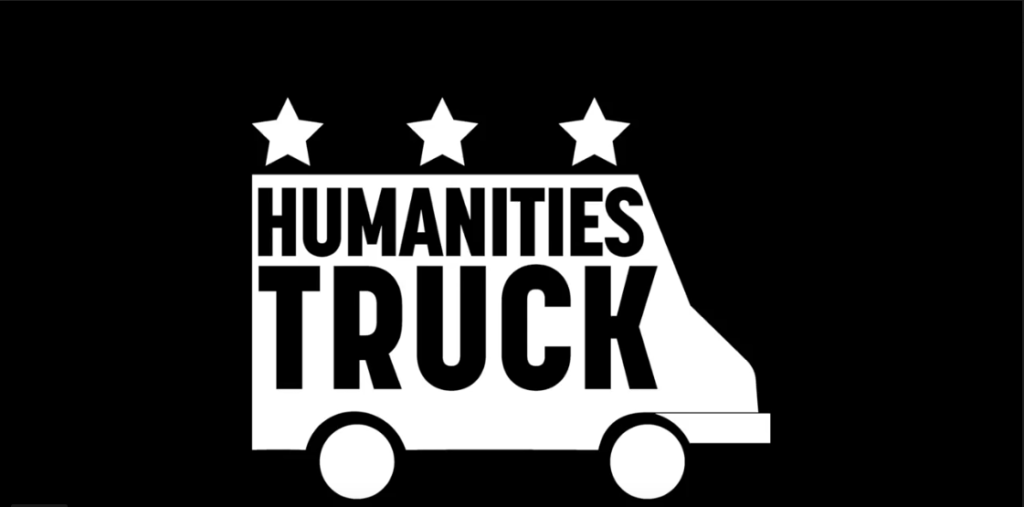When I signed on to be a Humanities Truck graduate fellow for the 2020-2021 school year in May, I thought there was still a chance the semester would be in-person. The Truck would resume programming, and we’d be adjusting to face-to-face rather than virtual interactions. How wrong I was.
So here I am, packed in at my dining room table with my three roommates, all working from home in some way or another. We have nature documentaries playing on the TV to distract our cat, and I’m still in my pajamas. Where do we go from here? How can the Humanities Truck continue building and sustaining relationships with our community partners when we can’t meet in person? How will the Truck mobilize the humanities when it can’t go anywhere?
The Truck Persists
I grappled with all these questions and more, wondering how to make the most of my fellowship and uphold the Humanities Truck mission in this strange new world. Thankfully, the graduate fellows before me had already wrestled with these issues. Last March, the Humanities Truck team started a crowdsourced virtual oral history project, titled From Me To You. The project aims to collect multiple perspectives on life during COVID-19, inviting one person to participate who then invites another person until we have created a web of interviews. This interconnectivity illustrates the perseverance and strength of personal relationships even while physically apart.
If you are interested in taking part and sharing your experiences with COVID-19, please check out our submissions page or reach out to us via email or social media with any questions!
Adjusting Our Aim
Usually, the Humanities Truck moves around DC fairly consistently, attending or hosting workshops, events, and exhibitions. Of course, most of these are cancelled, suspended, or online. Instead, those of us on the Humanities Truck team have been searching for a way to use the Truck’s platform and mission to contribute to local communities through food delivery and support the Black Lives Matter movement. We aim to create space for people to engage and think deeply about these issues facing humanity. Spurred by the Minneapolis Police’s murder of George Floyd, the protests and calls for change are critical. Although always important, now is a time to know our neighbors, engage in our communities, and critically examine institutions of power. This spring, former graduate fellow Meghan Dieckmann started gathering mutual aid resources related to both COVID-19 and in support of Black Lives Matter, all of which can be found here. The protests in DC have not stopped, and we firmly stand behind their mission.


